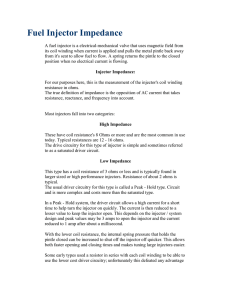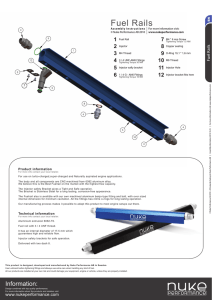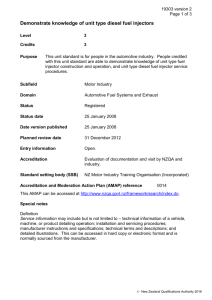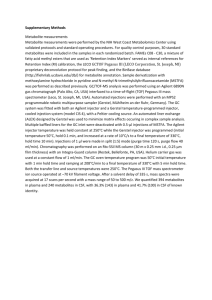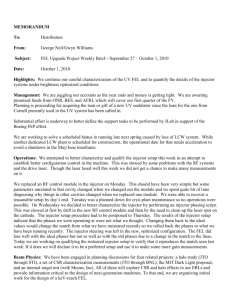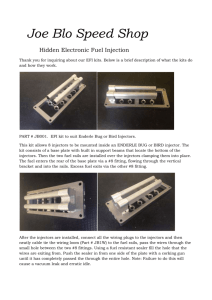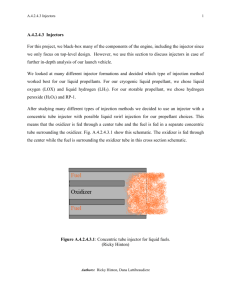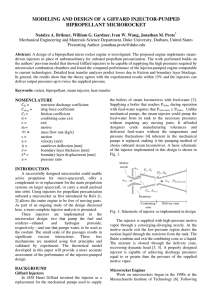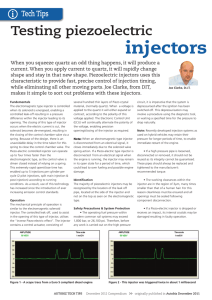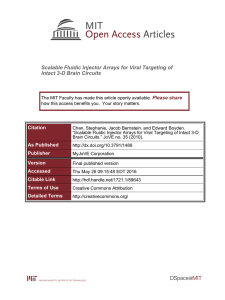Fuel Injector Diagnosis
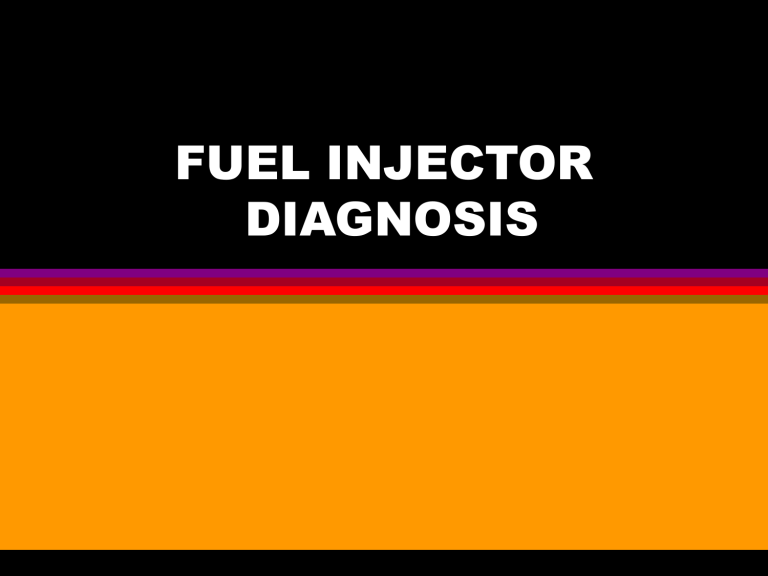
FUEL INJECTOR
DIAGNOSIS
INJECTION SYSTEMS
AND LAB SCOPES
Two Main Systems for
Injector Control
Group or Bank Injection
• Groups of injectors fire together
• Each driver fires two or more injectors
Sequential Fuel Injection
• Injectors fire one at at time
• Each injector has its own driver
Type determines diagnostic method
INJECTOR ELECTRICAL
CIRCUITS
Conventional (Mechanical)
Current Limiting
• Two mechanical methods of limiting current
• Ballast resistors
• High resistance Injectors
• Saturated Driver Circuit
• Turns injectors on and off
Conventional
(Saturated)
Switch Injector
Injector driver constantly applies current to the injector
Use a single ontime pulse
Measure from falling edge to rising edge
INJECTOR ELECTRICAL
CIRCUITS
ELECTRONIC CURRENT
LIMITING
• Peak and Hold
• Computer uses a “Peak Circuit” and a
“Hold Circuit”
• Computer turns on both circuits to energize injector - current flow high
• Turns off “Peak Circuit”
• “Hold Circuit” reduces current flow
• Turns off “Hold Circuit” to end on-time
PEAK AND HOLD
INJECTOR
Uses two circuits to energize injector
After initial current flow, one circuit releases and allows second circuit to operate with lower current.
Measure on time at falling edge and off time at second spike
PNP
Injector
PNP driver allows reverse polarity
Driver applies current to operate injector
Single on-time pulse
Pulse Modulated
Peak and Hold
Injector
ELECTRONIC
CURRENT
LIMITING
• Pulse Modulated
• Computer turns injectors on
• Computer rapidly pulses signal to limit current flow
• Computer turns injector off
BOSCH PNP
PEAK AND
HOLD
Same as NPN but reverse polarity
Circuit is always grounded
Computer sends pulse to energize injector
Used on
European cars
INJECTOR DIAGNOSIS
Must have clean vertical drop on on-time pulse
Pulse much reach within 600 milli-volts of ground
Spikes should be consistent, if not may be power feed to PCM
Waveforms abnormal - Start a waveform library
LAB PRACTICAL
• Get a car and hook up a lab scope to an fuel injector.
• Draw the pattern you get and identify the type of injector circuit
• Be sure to measure the amplitude and the pulse width.
